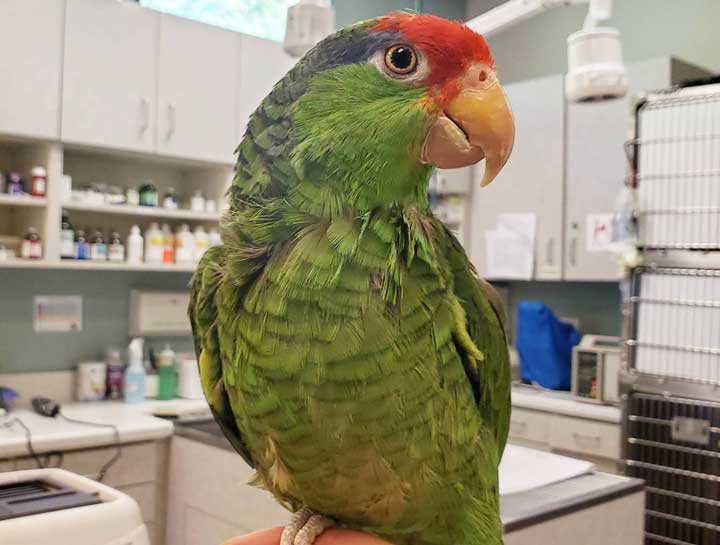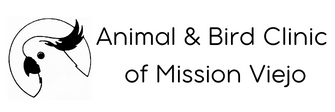Avian Care
Helping educate you on your bird and their care needs.
Being alone, cooped up in a cage all day long with nothing to do is a very boring and frustrating experience. Pet birds are intelligent, curious, and active animals whose psychological needs should be met.
Activity
- For appropriate species, opportunities may be provided for exercise in the form of supervised freedom from the cage.
- Locate the cage near family activity in the home.
- Toys provide diversion as do a variety of foods.
- Treats pushed into an apple or an orange present a bird with entertainment, challenge, and food, all at the same time.
- Use your own imagination, keeping within safe parameters and provide entertainment and enrichment for your pet birds.
Toys
Toys are useful as mental diversions and tend to encourage physical exercise and beak wear; however, they must be selected with the safety of the bird in mind. Swings, ladders, bells, and other sturdy wood toys are essential to birds well being. “Chewable” items include branches, pine cones, rawhide dog chews, natural fiber rope, and soft white pine.
Avoid easily dismantled toys such as balsa wood, small link chain items, toys with metal clips or skewers, or those with lead weights.
Diet
Your bird’s diet is one of the most important considerations of its overall care. Improper nutrition can have an adverse effect on all systems of the body.
Adequate feeding plans may be developed from a wide variety of commonly available foods, or formulated diets specially prepared for birds by commercial companies may be offered. The value of a proper diet over the life of your bird is monumental. Poor diets start a chain reaction leading to a decline in your bird’s overall health.
We recommend feeding Harrison’s Bird Foods as the core (up to 90%) of your bird’s diet. A certified organic food, it provides a balanced ratio between fat content, carbohydrates, protein, vitamins, minerals, and trace elements.
Fresh fruit (apples, oranges, grapes, melon, etc) and vegetables (broccoli, green beans, carrots, spinach, etc) as well as some pasta, rice, and bread can be used as treats or for a portion of your bird’s diet. DO NOT give avocado or fried foods to your pet bird.
Illness
Everyone wants their companion birds to be healthy and happy. However, in the early stages of illness, you may not notice the subtle symptoms they show unless you are very observant. Often the bird has been sick for some time, sometimes critically ill, before it shows a more pronounced symptom that finally catches your attention. Be alert for these and any other symptoms that seem abnormal. Any change from normal can signal illness and should be checked immediately.
- Loss of appetite
- Vomiting or regurgitation
- Breathing difficulty
- Eye or nasal discharge
- Weight loss
- Abdominal Swelling
- Weakness
- Broken bone
- Depression
- Seizures
- Excess sleeping
- Loss of balance
- Paralysis
- Prolapsed cloaca
- Diarrhea or unusual droppings
- Coughing, sneezing, or wheezing
- Favoring one leg or wing
- Bleeding or other signs of trauma
- Listlessness and not playing
- Sitting on the cage bottom
- Feathers “all puffed up”
Call us at (949) 768-3651 to schedule an appointment with a veterinarian for recommendations on caring for your bird.

